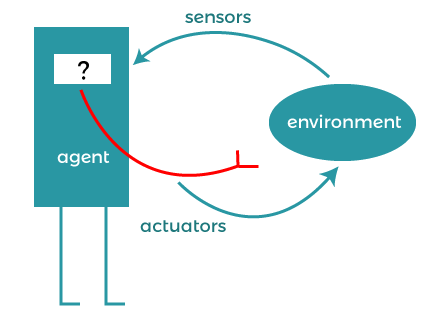Best Facts On Choosing An AI Agent Site For Business
Wiki Article
Ai Agents Can Reduce Financial Errors By 10 Ways
Here are 10 ways to use AI agents in your business to reduce the number of errors that you make manually.
1. Automated Data Entry
AI eliminates data entry errors by:
Using OCR (or optical character recognition, and NLP (natural processing of language) to extract financial data from documents such as invoices, receipts, and other financial documents.
Data can be synchronized directly with the system for financial transactions, removing the need for manual input.
2. Smart Validation Rules
AI ensures data accuracy by:
Cross-referencing inputs based on predefined rules, historical information and other external sources.
Reporting errors such as mismatched sums, duplicate entries, or formats that are invalid in real-time.
3. Real-time anomaly detection is extremely effective tool
AI identifies discrepancies by:
Examine financial transactions to find any anomalies or patterns that seem unusual.
Alerting users to potential errors or fraud before they get out of hand.
4. Standardize Financial Processes
AI assures consistency by:
Automating repetitive tasks like invoice generation, taxes calculations, and journal entry.
This reduces the amount of variability in teams caused by manual processes.
5. Use Predictive Analytic
AI minimizes forecasting errors by:
Analyzing historic trends and real time data will provide precise cash flow, revenue, and expenses forecasts.
Identification of areas with discordances.
6. Automate Reconciliation Processes
AI improves the accuracy of reconciliation of accounts through:
Automatically synchronize transactions between ledgers, bank accounts and invoices.
Highlighting mismatched items to improve resolution.
7. Deploy Intelligent Approval Workflows
AI reduces human oversight errors by:
Financial approvals through the use of pre-configured rules sets.
Prior to advancing transactions in the flow, be sure that they meet certain requirements.
8. Conduct regular data audits
AI simplifies audits by:
Monitoring and validating continuously financial records for compliance with the regulations.
Auditable reports that provide an exhaustive record of all changes and corrections.
9. Integrate AI with financial systems already in place
AI reduces integration errors by:
Simplly synchronizing data between CRM, ERP and accounting platforms.
Consolidating data, and avoiding data silos.
10. Help AI Users Train Effectively
AI tools perform best when they are used by informed users.
The employees must be taught in the ways in which AI tools can be employed efficiently, as well as the information produced by AI.
Encourage trust in AI for accuracy while evaluating crucial decisions.
Businesses can reduce manual errors and improve efficiency by using these methods. They have the resources to concentrate on financial strategic tasks. Follow the pro AI agent for Accounts Payable Management for blog info including AI agent for supplier diversity tracking, AI agent for payment status update, AI agent for procurement expense tracking, AI agent for payroll auditing, AI agent for job posting, AI agent for litigation support, AI agent for service survey collection, AI agent for customer feedback collection, AI agent for sales, AI agent for refund processing and more.

Ten Ways That Businesses Can Utilize Ai Agents To Detect Fraud And Manage Risk
Here are 10 ways businesses can make use of AI agents to identify fraud and reduce the risk of financial processes:
1. Real-time Monitoring of Transactions
Artificial intelligence (AI) agents can detect suspicious activity in the following areas:
Monitoring of financial transactions continuously real-time.
It is important to flag any transactions that don't follow the usual patterns. For example, unusually large payments or transactions, and transactions occurring at a rapid rate, should be reported.
2. Anomaly Detection
AI can aid in identifying abnormal behavior
Using machine learning algorithms to analyze historical transaction data and find outliers.
Be aware of patterns that may suggest fraud.
3. Predictive Risk Assessment
AI can spot risks in the future.
Analyzing previous data to determine the potential for certain financial frauds, or the risk of.
The marking of transactions or accounts that have high-risk profiles on basis of prior incidents.
4. Behavior Biometrics
AI agents can be used to analyze user behaviour by:
Monitoring interactions between users and financial platforms.
It is essential to identify any unusual or inconsistent behaviour that may indicate identity theft, or unauthorized access.
5. Automated Alerts in case of Suspicious Behavior
AI gives instant alerts via:
Informing compliance or risk management officers if suspicious activity is identified.
Triggering automated workflows for the locking of accounts or investigations into fraud.
6. Credit Scoring & Fraud Risk
AI assists in evaluating creditworthiness of customers by using:
Examining the history of financial transactions and behavior of customers to identify defaults or fraudulent acts.
Credit scores that are dynamic and change based on the current activity, allowing businesses to reduce risk when credit or payments terms.
7. Natural Language Processing (NLP) for Document Fraud Detection
AI can detect fake documents using:
Checking invoices and contracts for altered data, forged signatures or irregularities.
NLP algorithms are utilized to detect inconsistencies between text and context, which could be a sign of fraud.
8. Screening of Vendors and Customers
AI helps to reduce fraud:
Background checks can be conducted on vendors and customers using AI-driven analysis that is based on public documents, financial histories, and social media profiles.
Use flags to identify high-risk entities that need closer scrutiny before moving forward through a deal or contract.
9. Monitoring Compliance
AI ensures compliance with the law by:
Continuously checking financial operations against the latest regulations and conformity requirements.
Automating audits and reports to ensure that they adhere to laws, helping businesses identify and prevent financial misconduct.
10. Machine Learning for Continuous Fraud Detection Improvement
AI agents will be improved over time:
Machine learning can help adapt new fraud tactics.
Continuously learning on new data to refine fraud detection methods and reduce false positives.
By integrating AI in fraud detection companies can secure their assets, ensure compliance, and increase efficiency. View the top AI agent for Threat Intelligence Gathering for website examples including AI agent for profile update notifications, AI agent for policy change notifications, AI agent for regulatory compliance, AI agent for interviewing, AI agent for legal compliance, AI agent for expense reporting, AI agent for policy change notifications, AI agent for refund validation, AI agent for ip rights management, AI agent for it operations and more.

Ai Agents Can Reduce Costs In A Variety Of Ways.
AI agents are able to reduce the cost of financial operations in 10 different ways.
1. Automating routine tasks
Artificial Intelligence agents can carry out repetitive tasks like:
Automating manual processes like invoice processing. Data entry and transaction matching. This means you can free up time for employees.
Reduced operational costs by cutting down on the amount of staff required for routine tasks.
2. Improved accuracy and reducing mistakes
AI reduces the costs of human error by:
Minimize the risk of manual errors in financial information such as incorrect calculations, data entry mistakes or costly penalties.
Insuring the accuracy of financial reports Invoicing, reconciliations and financial reports. This can reduce the expenses associated with the need to rework, pay fines or rework.
3. Optimizing Cash Flow Management
AI enhances cash flow by:
Predicting cash flow gaps and recommending the best times to make payments or collections, thus avoidance of late fees and missed opportunities for early payment discounts.
The analysis of payment history can help identify trends and improve the ability of businesses to plan for seasonal fluctuations, reducing stress in cash flow.
4. Enhancing Expense Management
AI helps to manage and control costs by:
Automatically tracking, categorizing and analyzing expenditures, and identifying areas that can be improved or cut.
Cost-saving suggestions include negotiating better vendor conditions or identifying expenses that are not performing.
5. The process of streamlining financial reporting
AI reduces reporting costs by:
Automately generate financial reports and ensure they're in line with accounting standards. This means that there is no necessity of preparing them manually.
Accelerating the report generation process This allows decision makers to act swiftly without spending resources on prolonged report creation.
6. Fraud Prevention and Detection
AI helps reduce fraud-related costs by:
Continuously monitoring transactions to identify suspicious activity reduces the likelihood of fraud in the financial sector.
Automating the detection of fraud and reducing the expense of manual investigations, and the financial loss that may be incurred due to fraud.
7. AI-Driven predictive analytics
AI helps reduce costs through:
Predictive analytics are employed to detect inefficiencies such as excessive staffing, inadequate utilization, or underutilization, and suggest improvement suggestions.
Forecasting trends and behavior for the future, enabling businesses to make intelligent decisions that cut down on waste and optimize spending.
8. Optimizing Vendor and Supplier Payments
AI reduces vendor-related costs:
The analysis of payment histories will help you to determine the best times for negotiating terms for payments and taking advantage of early-payment discounts.
Automatically finding discrepancies, and solving them in invoices from vendors.
9. Automating Compliance and Regulative Work
AI reduces compliance costs by:
Automating regulatory reports and auditing tasks to ensure that compliance is completed on time, with less manually input.
Reduce penalties and fines resulting from inaccurate or late reports by automatically following all compliance requirements.
10. Improved decision-making and allocation of resources
AI assists in more efficient resource allocation
Providing data-driven insights that help improve the efficiency of financial operations from budgeting to investing decisions.
Helping decision makers identify the most profitable areas to invest in, while reducing unnecessary or unprofitable expenditures.
AI agents that are implemented in these areas will assist businesses not just in reducing costs, but also increase financial efficiency and operational efficiency. Follow the expert AI agent for Purchase Order Management for more recommendations including AI agent for refund processing, AI agent for technical support, AI agent for anti-money laundering, AI agent for payment scheduling, AI agent for performance management, AI agent for complAInt resolution tracking, AI agent for competitor news aggregation, AI agent for contract expiration tracking, AI agent for supplier risk management, AI agent for document management and more.
